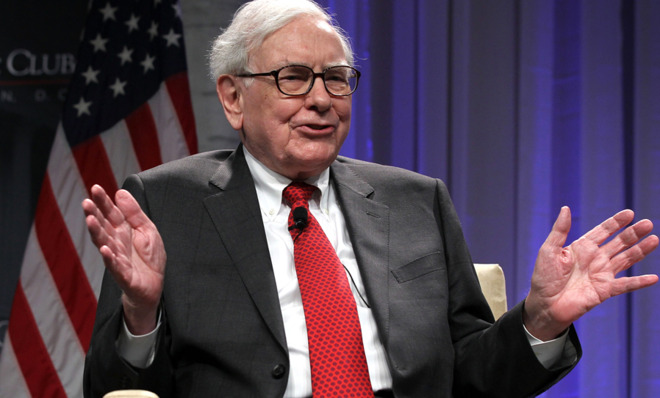No, the rich are not a persecuted minority
And yes, Nazi analogies almost always lose the argument

A free daily email with the biggest news stories of the day – and the best features from TheWeek.com
You are now subscribed
Your newsletter sign-up was successful
Tom Perkins, a Silicon Valley venture capitalist, recently wrote an aggravatingly obtuse letter to the editors of The Wall Street Journal in which he compared grassroots American worries over growing income inequality to Nazi persecution of Jews. Perkins went so far as to suggest that a "progressive Kristallnacht" may be on the horizon:
Writing from the epicenter of progressive thought, San Francisco, I would call attention to the parallels of fascist Nazi Germany to its war on its "one percent," namely its Jews, to the progressive war on the American one percent, namely the "rich."...
...This is a very dangerous drift in our American thinking. Kristallnacht was unthinkable in 1930; is its descendent "progressive" radicalism unthinkable now? [Wall Street Journal]
Sadly, Nazi analogies are all too commonplace in internet-era arguments. That's probably because Hitler's Nazis are the most universally reviled group in our popular imagination. So if you're reaching for a quick and dirty analogy for how your opponents and their views are just terrible, there is nothing quicker or dirtier than screaming, "Nazi!"
Of course, unless you can really back up your Nazi analogy with solid evidence, screaming "Nazi!" is also a quick and dirty way of losing the argument and making yourself look foolish. It essentially just becomes a very insensitive form of name-calling.
The Week
Escape your echo chamber. Get the facts behind the news, plus analysis from multiple perspectives.

Sign up for The Week's Free Newsletters
From our morning news briefing to a weekly Good News Newsletter, get the best of The Week delivered directly to your inbox.
From our morning news briefing to a weekly Good News Newsletter, get the best of The Week delivered directly to your inbox.
But setting aside Perkins' insensitive rhetoric and focusing on his larger point: Is there really evidence that the rich are being persecuted by progressives and the government? Are they in any danger of having their entire livelihoods seized or smashed up?
No. First of all, the "rich" are not a homogeneous minority group. Rich people come from all kinds of ethnic and gender backgrounds, sexual orientations, age groups, and political beliefs. And they are not in any way unrepresented in power. Rich people by definition have access to wealth, and thus political influence. This by definition makes them a political and economic powerhouse. Over half of the people in Congress are millionaires, compared to less than 10 percent of Americans generally.
But much more importantly, as Warren Buffett argues, fighting income inequality isn't about knocking the rich down, but building the poor and middle class up. President Obama, in his 2013 inauguration address, argued that "our country cannot succeed when a shrinking few do very well and a growing many barely make it." A "thriving middle class," he said, "is the true engine of economic growth."
This is true, and it needn't and won't come at the expense of the rich. Yes, taxation is necessary to pay for investment in programs to help the middle class — education, infrastructure, safety nets, etc. And, as Warren Buffett argues, the rich must pay their share. But a thriving middle class means a bigger, more prosperous market to sell to. That's good for the rich, even if they end up paying slightly higher taxes to get there. Economics isn't a zero sum game. A rising tide can lift all boats, fancy yachts included. That's one reason why the 1950s and 1960s — which had much lower income inequality — also had much higher economic growth.
A free daily email with the biggest news stories of the day – and the best features from TheWeek.com
Ultimately, arguing that the rich in America are being persecuted like Jewish people in Nazi Germany is just disrespectful to the memory of all those who died at the hands of the Nazis. And really, it's the wealthy — like Tom Perkins — who actually have the most to gain from a thriving middle class able and willing to buy the products that the wealthy bring to market.
John Aziz is the economics and business correspondent at TheWeek.com. He is also an associate editor at Pieria.co.uk. Previously his work has appeared on Business Insider, Zero Hedge, and Noahpinion.
-
 What is the endgame in the DHS shutdown?
What is the endgame in the DHS shutdown?Today’s Big Question Democrats want to rein in ICE’s immigration crackdown
-
 ‘Poor time management isn’t just an inconvenience’
‘Poor time management isn’t just an inconvenience’Instant Opinion Opinion, comment and editorials of the day
-
 Bad Bunny’s Super Bowl: A win for unity
Bad Bunny’s Super Bowl: A win for unityFeature The global superstar's halftime show was a celebration for everyone to enjoy